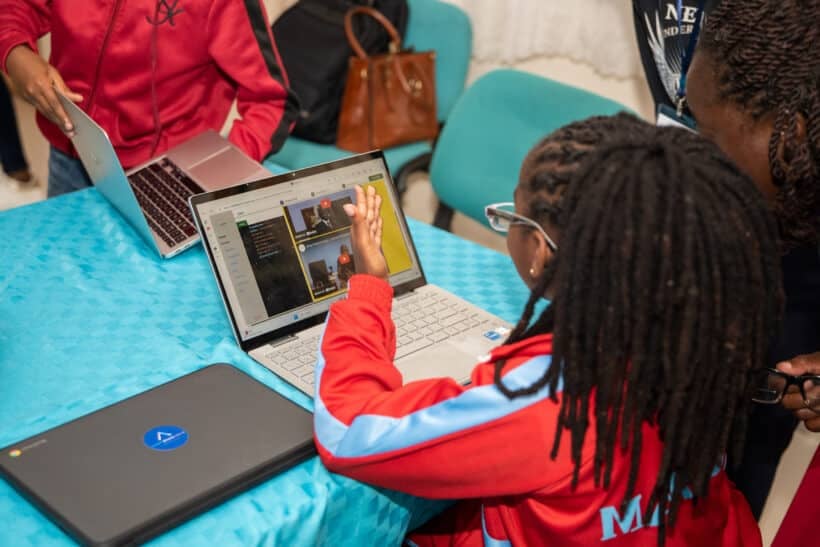
Over the next 30 years, most of the world’s workforce will come from Africa. This presents an opportunity for more attention and investment in the continent, specifically within Africa’s education system. Investing in education is an opportunity to not only support the development of the continent, but also to empower and lift a generation from poverty, inequality, and social disparities.
According to the African Union, progress in education has a far-reaching impact on all the other aspects of human capital development.
Building a new social contract for Africa through education and skills development is not just an aspiration; it is a commitment that the continent must make. These investments can take many forms, such as developing capacity for educators, building and operating infrastructure that will broaden access, investing in educational technology, providing scholarships, championing evidence-based policies and strategies and many more.
There is a need therefore, for a shift in the approach to education and skills development required to move beyond traditional models and embrace innovative methods that harness technology, creativity, and experiential learning.
The February edition of the Mastercard Foundation EdTech Mondays sought to explore what investments are needed to transform Africa’s education systems and what role EdTech plays in achieving transformative learning outcomes across the continent. What areas should be prioritized where investments in education are concerned and how countries can build resilient education systems were discussed at length.
Krista Davidson, the Executive Director of Injini, a South African EdTech accelerator and think tank, emphasized that more investment is required to address two critical issues: connectivity, and empowering teachers to comprehensively implement learner-centered models of education.
Panelists agreed that one area to prioritize where investments in education are concerned is teacher training. Teachers require adequate training and support. It was noted that the lack of thorough training for educators was an obstacle preventing the continent from achieving improved learning outcomes.
“South Africa, for instance, requires 25,000 new teachers annually, against the 6,000 available. There is a shortage of sufficiently qualified teachers,” Krista went on to state.
Nissi Madu, Managing Partner at Co-creation Hub (CcHUB), Africa’s foremost technology innovation centre in Nigeria, echoed Krista’s opinions. Nissi highlighted a need to monitor and evaluate the continent’s learning systems to ensure that learners get the right kind of education for today’s fast-changing digitally driven economies.
Nissi went on to note that addressing the teacher challenge is an issue that requires continuous support as this, in turn, strengthens the continent’s education systems.
The African Union declared 2024 as the year of education in Africa, with a reinforced focus on advocacy for increased investment and commitment to education.
John Kimotho, an education consultant and expert at EdTech Hub in Kenya, went on to note that “Africa needs to invest and focus on education systems that are learner-centered and that prepare the learner to be a global product capable of settling in and working anywhere in the world.”
While teacher training remains imperative, countries need to design curriculums that can be quickly adopted and that are flexible enough for the future.
“Each learner has their own unique potential. We just need the right content and teachers who can capably deliver this content. Digital skills are important in this regard as well. So, Africa just must be able to systematically tailor its educational content to deliver value to its learners,” John added. “While, at the moment, our investment in education is good, the question should be, are we organizing this investment in the right way?”
To achieve transformative change within our education systems, the panelists emphasized and further highlighted the importance of policy and partnerships, asserting that the onus is on the different industry players to inform the right policies by collaborating with policymakers in implementing policies geared towards building resilient educational systems.
“Learning is not learning until there are learning outcomes,” John Kimotho said, “If practice is ahead of policy, we the practitioners need to help the policy makers and guide the framework that is going to compliment the innovations that are coming to ensure that no learner is left behind.”
“Innovation and technology, can do a lot in enhancing the education systems continentally,” Krista added. “Policymakers need to be well informed so that the policies they develop, and implement are appropriate, and in line with the continent’s educational requirements now and in future.”
Nissi shared these views stating that “there must be collaborations between both the public and private sectors, and concerted efforts among all stakeholders to drive the adoption of EdTech, this will improve learning outcomes. Leveraging innovation and technology, offers an opportunity for even more improvements, more so, within the EdTech ecosystem.”
The panel of experts expressed their optimism, acknowledging that there have already seen positive investments and collaboration in the continent particularly in EdTech. Platforms such as EdTech Mondays by Mastercard Foundation facilitate critical conversations on the use of technology for teaching and learning by bringing together key stakeholders that include policy makers, EdTech entrepreneurs, teachers, and parents.
To get the right outcomes and achieve a paradigm shift in transformative education, investment in teacher training needs to be prioritized across the continent. Collaborations between policy makers, investors and players in the EdTech sector should be encouraged. There is a need to be intentional about learning outcomes and ensuring relevance of education to create learners for the future.
Watch February’s edition of Ed-Tech Monday: Investment in Education for Transformative Learning

